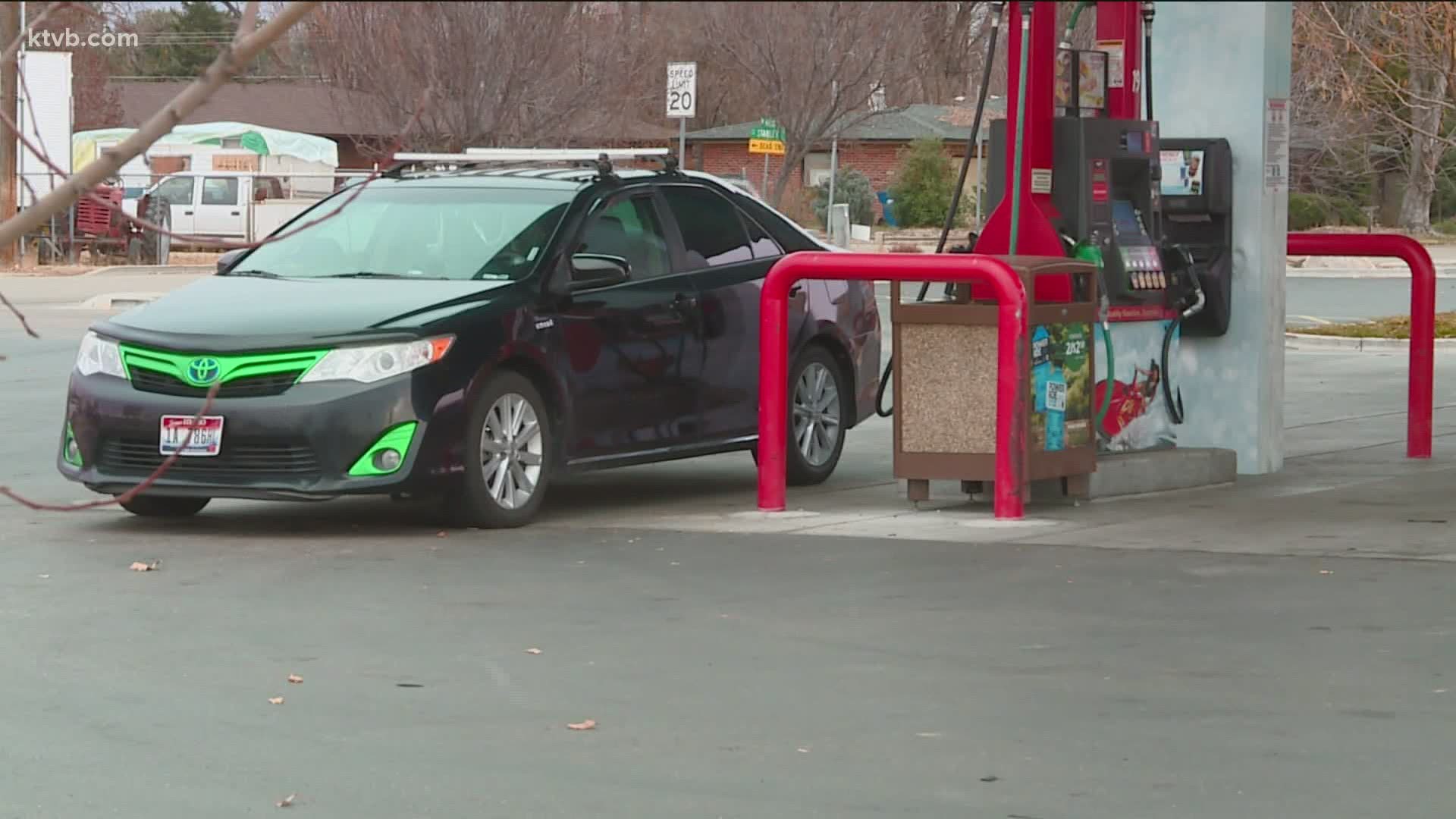This story was originally published in the Idaho Press.
Idaho senators on Tuesday supported a bill that would restrict the Idaho attorney general's ability to prosecute price gouging during an emergency such as the novel coronavirus pandemic.
S1041, introduced by Sen. Jim Guthrie, R-McCammon, and the Idaho Petroleum Marketers and Convenience Store Association, amends Idaho statute to prohibit exorbitant or excessive "increased" prices during an emergency, a change from the current language that prohibits excessive or exorbitant prices, even if they remain the same or decrease.
Lawmakers on the Senate Commerce and Human Resources committee unanimously voted to send the bill to the Senate floor with a "do-pass" recommendation.
The Idaho Attorney General's Office, which infrequently comments on the goings on of the Legislature, testified in opposition of the bill Tuesday, arguing the legislation will make price gouging easier.
"In the middle of a pandemic why would the Legislature want to make it easier to price gouge?" Deputy Attorney General Brett DeLange told the Idaho Press. "We don't think that's the right policy for the state."
The proposed change comes after a combined $1.5 million settlement between Attorney General Lawrence Wasden's office and three of Idaho's largest fuel retailers, which last year were investigated for price gouging.
Wasden began investigating fuel prices after his office received consumer complaints alleging high prices. The attorney general's office collected data on the margins between wholesale and retail prices of fuel, both before and after the start of the pandemic.
The data showed the 14-year average margin was 10 cents per gallon, while, during the pandemic, margins were three to four times higher. Wasden's office concluded the margins were excessive or exorbitant. Instead of a formal lawsuit, his office reached a settlement with the three largest fuel retailers in Idaho, Maverik, Jacksons Food Stores and Stinker Stores. The three companies admitted no wrongdoing.
S1041 directs the attorney general's office to not consider margins, as it did with fuel prices last year, but rather an increase in the price of goods. It also directs the attorney general to consider "increased prices due to loss of sales or volume sold."
Kenneth McClure, an attorney at Givens Pursley and lobbyist for the Idaho Petroleum Marketers and Convenience Store Association, of which the three convenience stores involved in the settlement are members, testified on behalf of the bill. McClure said price gouging involves taking advantage of a supply-demand imbalance where there is high demand and low supply in an emergency. The opposite was true last year when his clients were accused of price gouging, McClure said, as demand for fuel was low due to reduced travel.
"We have a statute that does some things that have caused us to scratch our heads," he told the committee. "We don't believe anyone has taken advantage of a consumer nor do we believe anyone has taken advantage of an emergency."
Charley Jones, owner and president of Stinker Stores, testified that his business plummeted as a result of the pandemic, particularly the volume of gas he sold. Jones said "price gouging is an ugly term" and he was "rightfully offended" when the attorney general's office made its inquiry into Stinker Stores' fuel prices.
Ultimately, Jones said he complied with the settlement to avoid a costly legal battle.
"It was a business decision," he said. "I was scared in March and April about the future of my company. Even if I was to win that argument, I'd lose because of the legal fees involved."
Committee members sided with the retailers.
Sen. Mary Souza, R-Coeur d’Alene, a business owner, objected to the attorney general using "normal" margins as compared to emergency margins to investigate price gouging without taking into account other impacts, such as reduced sales volumes, which might require businesses to increase prices to stay afloat.
"It doesn't come down to one metric," she said. "We were in the throes of this pandemic, and the government had stepped in and told small business and every individual that they needed to change their methods. This was not normal."
DeLange, who leads the attorney general's consumer protection bureau, said S1041 would "emasculate" the attorney general's ability to enforce price gouging during an emergency.
"It would no longer prohibit what we found out last year with the retailers," he said. Because the proposed amendment would direct his office to consider a drop in sales volume as a reason for increasing prices, "Every time, someone will say, 'Well, I jacked it up because my volume went down,'" DeLange said. "Those are not workable conditions."
DeLange added, the price gouging statute is unique in that only the attorney general is authorized to enforce it.
"There's no private cause of action, so consumers can't protect themselves from price gouging," he said. "It's either the attorney general or no one."
Ryan Suppe is the Boise City Hall and Treasure Valley business reporter for the Idaho Press. Contact him at 208-344-2055 (ext. 3038). Follow him on Twitter @salsuppe.
Watch more Idaho politics:
See all of our latest political coverage in our YouTube playlist:

